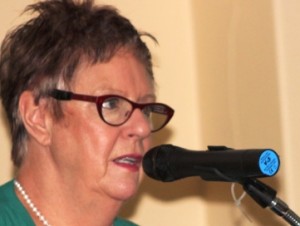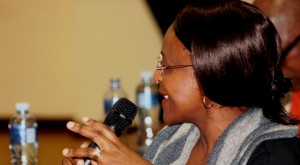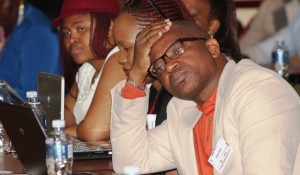
Social awareness key in education redress
Lecturers from the various Universities across the country kicked off thought-provoking discussions about foundational provisioning at a colloquium hosted by WSU and University of Fort Hare (UFH) in East London which runs from Tuesday 25-26 August.
Addressing the delegates, Rhodes University dean for teaching and learning Prof Chrissie Boughey said social awareness and accountability must become the key principle and approach in South African Universities’ administering of higher education to its students.
Boughey said maintaining the ‘decontextualized learner’ approach to teaching in South Africa only serves to benefit the privileged white middle class who continue to excel because of their advantaged backgrounds.
“The decontextualized approach works with that which we’re naturally born with – our inherent abilities; natural smarts; innate or inborn confidence as human beings.”
“Besides the natural distribution of these traits, the privileged few can enhance these within their children through access. It doesn’t recognise the poor socio-economic and historical context within which this country operates and this would serve to keep poor people in the periphery of academics,” she says.
Boughey added that Universities need to acknowledge and treat students as “social beings” and introduce mechanisms to help them achieve some semblance of equality through an evidence-based learning approach.
UFH Teaching and Learning Centre Director Dr Noluthando Toni said the event was vital in providing a platform for academics to pause and consciously reflect on best practices.
“This colloquium is specifically intended to provide space to reflect, articulate and share experiences of designing and facilitating learning in extended programmes,” said Toni.
WSU Learning and Teaching Development Institutional Director Velile Dwayi said academic discourses of such nature were critical in generating new ways and approaches to teaching and learning.
“Such spaces should constitute not only the main feature of University practice where interlink between theory, practice, development and research might be promoted, monitored and evaluated, but also the generation of new ways of practices which continue to evolve through our academic discources,” said Dwayi.
WSU Extended Programmes Institutional Coordinator Thabile Loqo said efforts to introduce a uniform approach in WSU’s screening, admission and placement of students in extended programmes could help improve teaching and learning at the institution.
She said the University must move away from academic programmes setting their own admissions guidelines and start subscribing to an institutionally-set standard.
“The current practice leaves us susceptible and prone to enquiries and questions, and rightfully so, about how we determine students’ needs for foundational provision from the ones that don’t because there’s no uniformity in the system,” said Loqo.
By Thando Cezula












